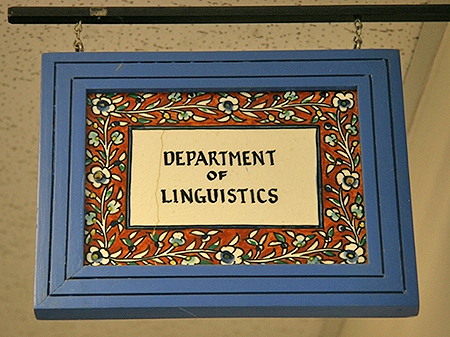
Linguistics ETDs
Publication Date
Summer 7-18-2018
Abstract
In Wayuunaiki, verbal affixes cross-reference clausal arguments in various ways. Most notably, there are two ways to express transitive subjects, and two ways to express possessors. Much like voice alternatives, the variable expression of subject and possessor impart different perspectives on a situation type, but unlike traditional voice categories, syntactic valence remains equal. This dissertation characterizes these constructions with a specific question in mind: what do these two cross-referencing alternations communicate and what influences their usage? To answer these questions, I consider the linguistic properties observed in the usage of these constructions in narratives (Jusayú 1986, 1994), and informal conversations.
Mosonyi (1975) describes the Subjective and Objective transitive clauses as focus alternatives. Álvarez (1993) discovered that the O in the Objective clause must be definite. Despite the association of definiteness and focus as a central factors, the usage of the alternatives in discourse has has not received enough attention. I here conclude that the Subjective variant is the pragmatically marked option, whose primary function is to defocus a 3rd person O that is typically inanimate, new and non-topical. This clause type has the effect of retaining its syntactic valency, but expresseing semantically low transitivity.
Álvarez (1990) documents possessor ascension as a construction that involves unrestricted noun incorporation. Matera (2001) adds that the possessor of an incorporated noun can only assume the role of transitive object or stative subject. In the present corpus exploration, I conclude that the External Possessor construction is the functionally marked clause, whose function is primarily to defocus a possessed nominal that is typically inalienable, inanimate, and non-topical information. Additionally, whole-part relationships frequently participate in incorporation, while kinship relations do so rarely.
These two ways to cross-reference arguments are here interpreted as differential focus assignment on clausal arguments (Dixon & Aikhenvald 1997). They both involve the prefixation of a- referring to the transitive subject and the external possessor. I conclude that in these constructions this prefix has the effect of backgrounding an entity and consequently assigning undivided focus to the subject or the possessor.
Language
English
Keywords
Wayuunaiki, Guajiro, Arawak, Morphology, Syntax, Discourse
Document Type
Dissertation
Degree Name
Linguistics
Level of Degree
Doctoral
Department Name
Department of Linguistics
First Committee Member (Chair)
Melissa Axelrod
Second Committee Member
Rosa Vallejos
Third Committee Member
José Álvarez
Fourth Committee Member
Alexandra Aikhenvald
Recommended Citation
Sabogal, Andres M.. "The Variable Expression of Transitive Subject and Possesor in Wayuunaiki (Guajiro)." (2018). https://digitalrepository.unm.edu/ling_etds/59
Included in
Caribbean Languages and Societies Commons, Discourse and Text Linguistics Commons, Language Description and Documentation Commons, Morphology Commons, Semantics and Pragmatics Commons, Syntax Commons
